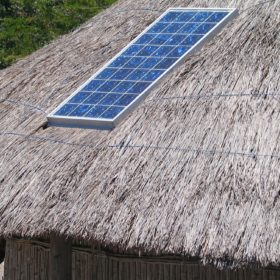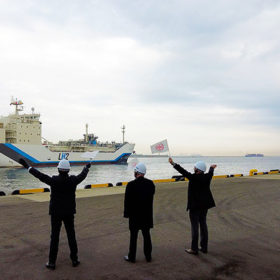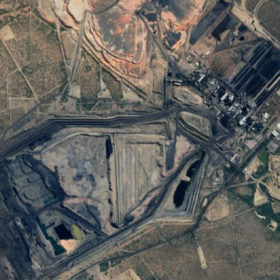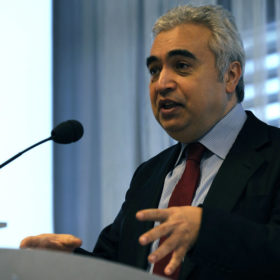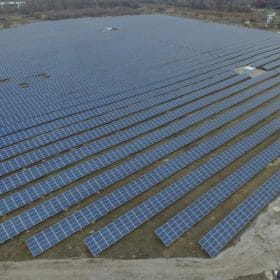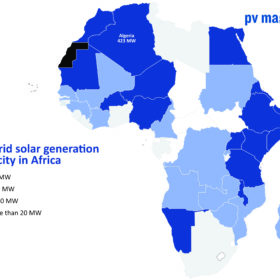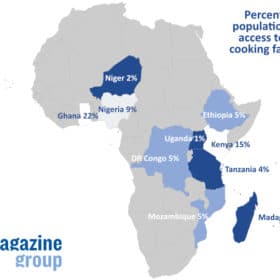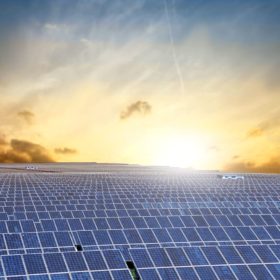Irena gives latest update on stark chances of electricity access for all by 2030
The International Renewable Energy Agency’s latest annual report on the progress towards UN sustainable development goal seven estimates 670 million people will still lack electricity in 2030, and more than 2 billion will be reliant on unhealthy, polluting cooking methods.
Australia to make world’s-first liquefied hydrogen shipment to Japan
The Suiso Frontier cargo vessel docked at Victoria’s Port of Hastings on Friday to take on the world’s first shipment of liquid hydrogen. The ship’s arrival is a landmark for the Japanese-Australian Hydrogen Energy Supply Chain pilot project, which sees liquefied hydrogen generated from brown coal, and an engineering milestone in itself. But while the Australian government describes the product as “clean”, experts maintain that carbon capture and storage technology has proven only to be an expensive failure.
China and India to drive record world coal demand next year
Advances in solar power and other clean energy technologies have failed to keep up with demand for electricity as economies rebound from the Covid crisis and China and India’s fossil fuel appetite will ensure the world stays well short of what is needed for a net zero 2050 for at least the next three years.
Record solar numbers expected this year but IEA highlights pricing concern
The Paris-based body expects the world will have installed almost 160 GW of solar this year, a record number, but still not enough to keep the prospect of a net zero global economy by mid century in sight.
A net-zero Canada would need 1.6 GW of solar per year from now on
Clean energy trade group the Canadian Renewable Energy Association has told policymakers CA$8 billion worth of solar and wind projects will be needed each year to decarbonize the electricity supply by 2035 and remove net emissions by mid century.
China can ensure a 1.5C world – and continue to dominate the global clean energy supply chain
A report by the IEA laying out two routes for China to reach net zero attempts to persuade policymakers to gun for that goal by 2050, rather than ten years later, and dangles the prospect of continued global dominance as the main reward on offer.
East African renewables developers and investors need matchmaking
Lack of grid capacity and renewable energy institutions are a common lament in sub-Saharan Africa but there is no lack of cash to invest, nor eligible projects in East Africa, as a recent event heard; the problem lies in marrying the two.
Universal electricity access by 2030 remains a distant dream
Energy efficiency, electrification of heating and transport, and the provision of clean cooking facilities are all going in the wrong direction as the Covid crisis deprived millions in sub-Saharan Africa of electricity use, according to a report by the IEA, IRENA, WHO, World Bank and UN Statistics Division.
Are oil and gas companies on the run?
Private sector fossil fuel spending on exploration is drying up just as modest rises in clean energy investments are being observed. With stock market investors increasingly embracing renewables, the IEA has observed positive signals in its latest energy investment report, but warned we are still doing far too little to keep global heating at bay.
Rystad doubles IEA calculations on solar PV required by 2050
Solar rules in any scenario of what the world needs to work toward over the next three decades to keep global warming under 1.5 C.
